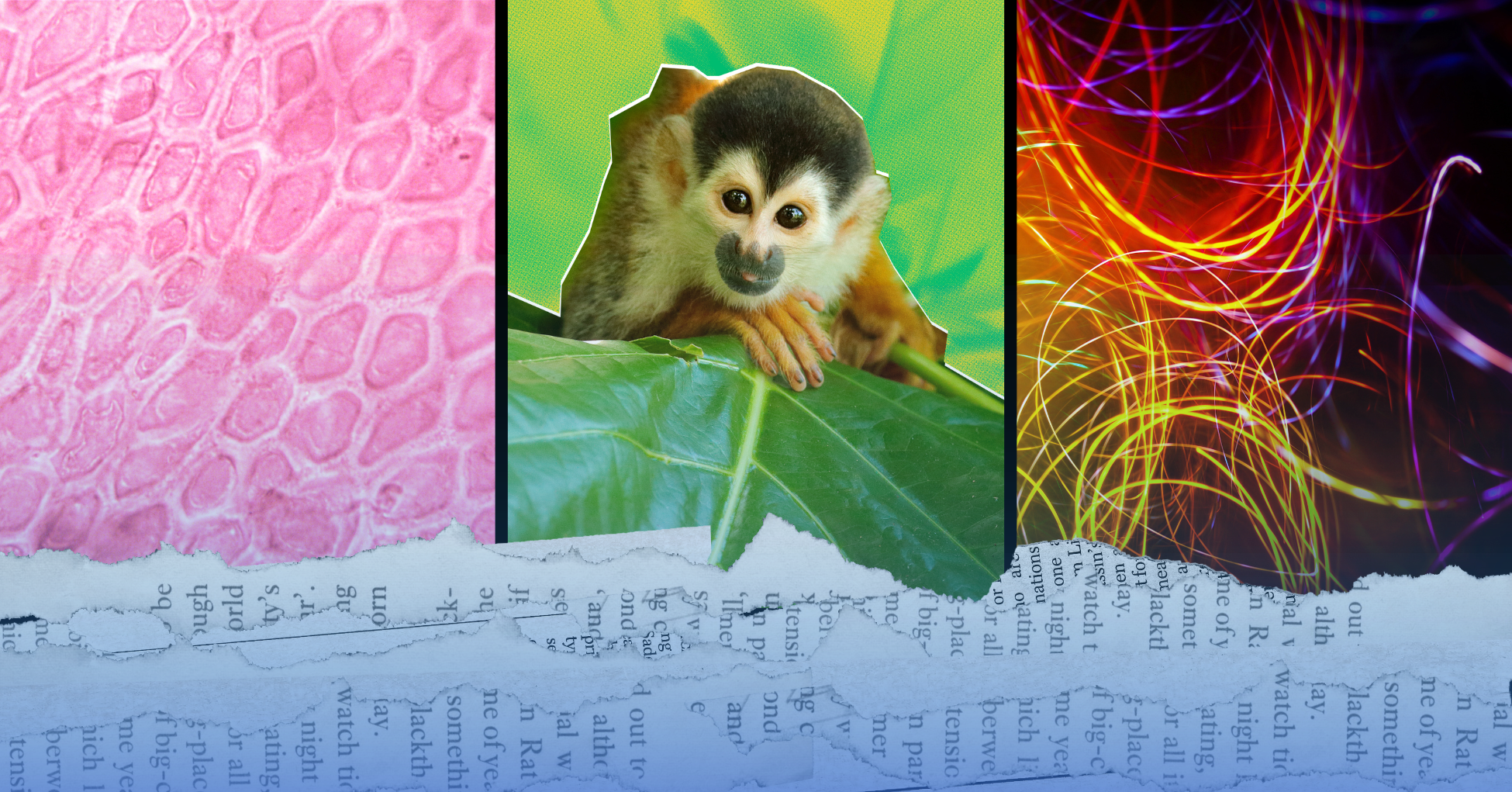
While the animal research industry continues to breed, buy, cage, torture, and kill sentient beings, progressive scientists are busy proving that human-relevant science is not only possible but, in fact, better for us all. Highlights in science from the last month are below.
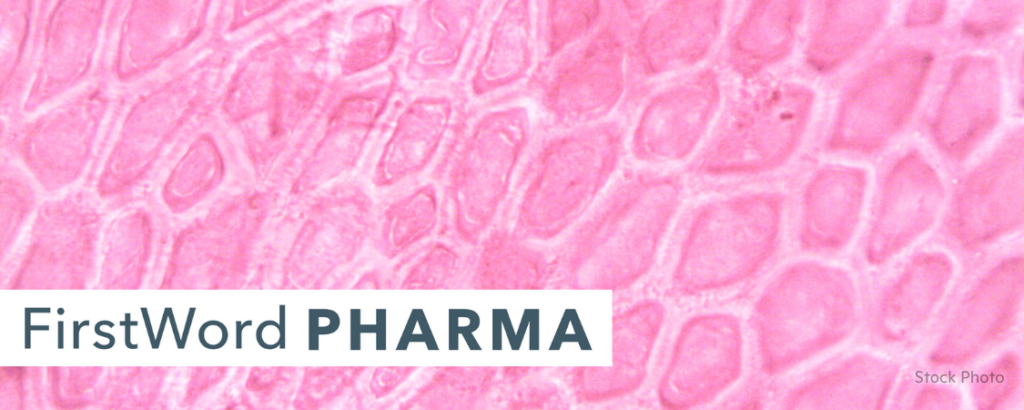
Revolutionary High-Speed 3D Bioprinter Hailed a Gamechanger for Drug Discovery
University of Melbourne, 11/3/2024
“Biomedical engineers from the University of Melbourne have invented a 3D printing system, or bioprinter, capable of fabricating structures that closely mimic the diverse tissues in the human body, from soft brain tissue to harder materials like cartilage and bone.”
“This cutting-edge technology offers cancer researchers an advanced tool for replicating specific organs and tissues, significantly improving the potential to predict and develop new pharmaceutical therapies. This would pave the way for more advanced and ethical drug discovery by reducing the need for animal testing.” 📰 Full Story →

China Sets ‘Organ-Chip’ Standard for Skin Research as Global Biotech Race Heats Up
Meredith Chen, South China Morning Post, 11/5/2024
“Pradipta Ghosh, an Indian-born American physician-scientist, biochemist, and cell biologist with expertise in clinical medicine and basic research . . . challenge[s] the reliance on traditional animal models such as mice and rats – systems she says fail to bridge the gap between laboratory research and clinical success. She [] speak[s] on embracing a new era in which organoids, smaller and more simplified versions of human organs that are produced in a lab to function as patient ‘avatars’, could offer more ethical, efficient and accurate alternatives to animal testing in clinical trials.”
“Dr Gosh explained that we rely on a lengthy drug discovery process involving approximately $2.5 billion for every drug that fails. She said the process can take a decade to 15 years per drug, with the vast majority of them failing. ‘Why do they fail? They fail because we tend to test them on animals – mice, rats and chimps, which have all these illusions of similarities, flawed illusions of us matching with them. After all that, we have cured mice of every disease known to man, but have almost nothing for what we get sick and die from.’”
“Dr Ghosh said BioDesign could address factors responsible for ‘about 90 per cent of setbacks in drug discovery’.” 📰 Full Story →
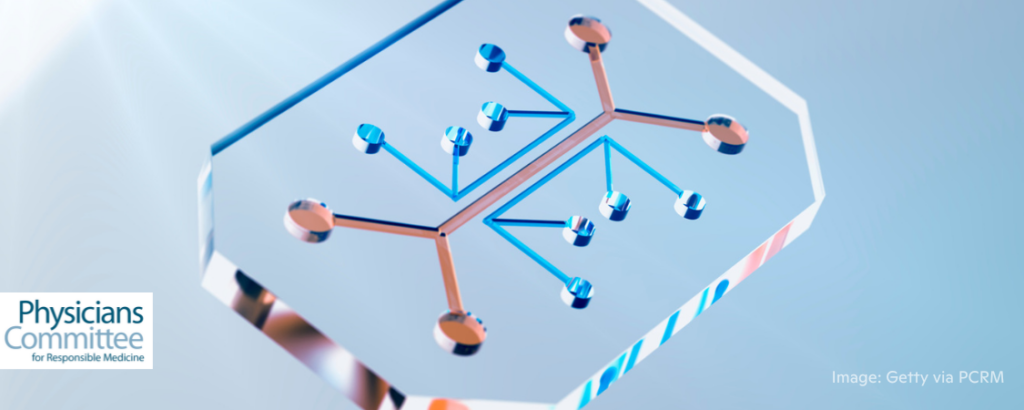
Innovative FDA Program to Evaluate Nonanimal Organ-on-a-Chip Technology
PCRM, 11/6/2024
“In an exciting development for drug development and patient care, the FDA has officially accepted the first submission of an organ-on-a-chip technology under its Innovative Science and Technology Approaches for New Drugs (ISTAND) Pilot Program. This significant milestone not only highlights the modernization of drug evaluation processes but also reflects a growing recognition of the need for innovative tools in assessing drug safety.”
“The tool recently accepted into the ISTAND program is a liver chip. This organ-on-a-chip technology is specifically designed to assess the risk of drug-induced liver injury (DILI) in potential drug candidates and to create human-relevant data for the candidate drug’s Investigation New Drug (IND) submission.”
“The acceptance of the liver chip into the ISTAND program marks a pivotal step in the evolution of drug development.” 📰 Full Story →
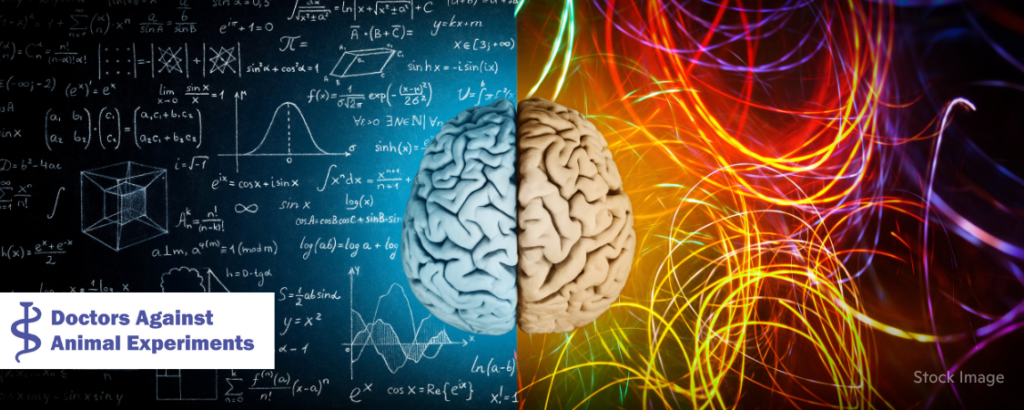
Human Brain Organoids as Models for Learning and Intelligence
Doctors Against Animal Experiments, 11/11/2024
“The number of people with neurodevelopmental disorders, such as autism spectrum disorders (ASD), is increasing, largely due to lifestyle changes and environmental exposures. Brain organoids allow researchers to closely model human brain development. This enables them to investigate how environmental factors like toxins and medications disrupt neural development and affect cognitive functions.”
“By using stem cells from individual patients, researchers can even create personalized brain organoids, which serve as a kind of ‘living biopsy.’ These personalized organoids are particularly useful for studying neurological disorders and individual differences in disease susceptibility.” 📰 Full Story →

Could This Startup End the Need for Animal Testing?
Jonathan Symcox, Business Cloud, 11/12/2024
“Traditionally, new therapeutics are tested on cells that are isolated from a tissue and placed in a stiff plastic surface – a petri dish. ‘It’s a very unnatural environment for cells to grow in,’ explains Dr Meinert. ‘The data you generate is not predictive and it does not resemble human biology very well. ‘You have the same issue with animals: a lot of animals are used for research purposes, close to 200 million every single year. But actually, the biology of animals and humans is very, very different.’”
“The technology [Dr Meinert] worked on during his PhD and with his co-founders essentially allowed them to grow small representations of human tissue in that petri dish. ‘Initially we thought we’d do this for clinical purposes – to restore damaged tissues to patients – but then we realised we could use this in vitro in the lab to improve the predictiveness and the efficiency of the drug discovery process. That essentially led us to realising the commercial potential and spinning out our company.’” 📰 Full Story →
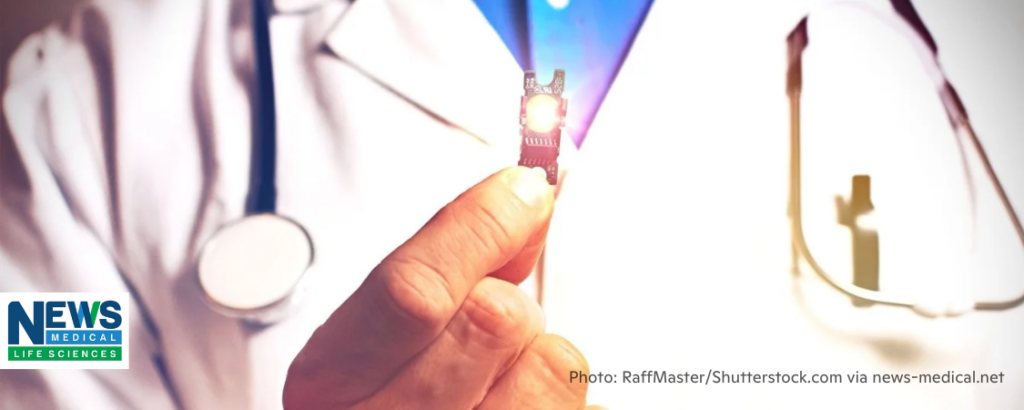
Patient-Derived Organoids: Transforming Cancer Research and Personalized Medicine
Dr. Sushama R. Chaphalkar, News Medical Life Sciences, 11/12/2024
“[Patient-derived organoids (PDOs)] replicate the complexity of human tumors, allowing for advanced studies of the tumor microenvironment (TME) and serving as preclinical models for gene editing, molecular profiling, drug testing, and biomarker discovery–crucial for personalized treatment approaches.”
“Recently approved as alternative drug-testing methods, organoids hold potential to replace animal models, providing insights into TME interactions and patient-specific drug responses.” 📰 Full Story →
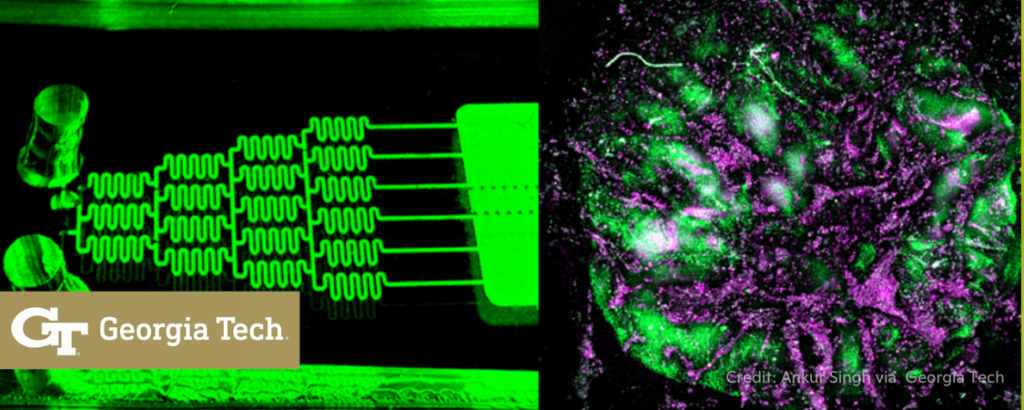
Lab-Grown Human Immune System Model Uncovers Weakened Response in Cancer Patients
Georgia Institute of Technology, 11/12/2024
“To better understand why some cancer patients struggle to fight off infections, Georgia Tech researchers have created tiny lab-grown models of human immune systems.”
“These miniature models – known as human immune organoids – mimic the real-life environment where immune cells learn to recognize and attack harmful invaders and respond to vaccines. Not only are these organoids powerful new tools for studying and observing immune function in cancer, their use is likely to accelerate vaccine development, better predict disease treatment response for patients, and even speed up clinical trials.”
“The researchers were inspired to address a critical issue in biomedical science: the poor success rate of translating preclinical findings from animal models into effective clinical outcomes, especially in the context of immunity, infection, and vaccine responses.” 📰 Full Story →
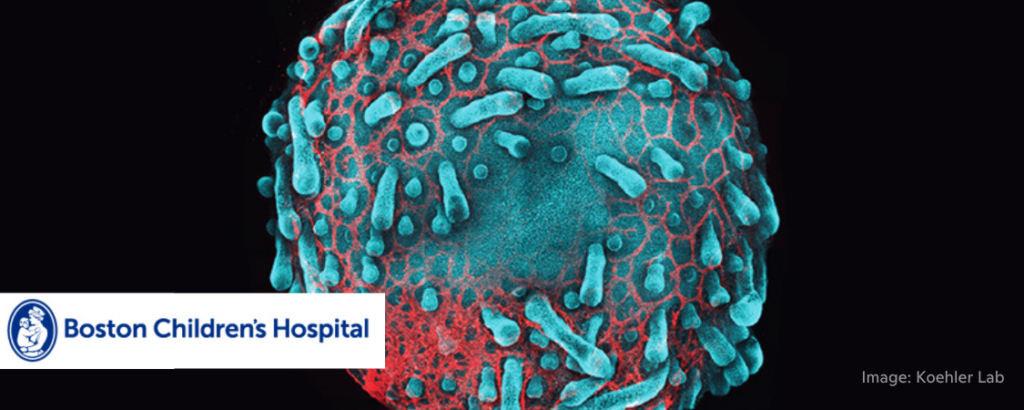
Skin Organoids Could Guide New Treatments for Skin Conditions, Hair Loss
Nancy Fliesler, Boston Children’s Hospital, 11/14/2024
“Several years ago, Karl Koehler, PhD, and colleagues at Boston Children’s Hospital used pluripotent stem cells to create mini-organs (organoids) that capture most of the features of human skin, down to hair and hair follicles. Separately, researchers at the Wellcome Sanger Institute had been studying prenatal skin samples. Teaming up, the two groups used single-cell sequencing and other genomic techniques to create a comprehensive cellular atlas of developing skin. They used the findings to refine the Koehler lab’s organoids.”
“The research . . . could have many applications — from growing new skin to preventing scarring after surgery to regenerating hair after hair loss. Most immediately, Koehler wants to find treatments for genetic hair and skin disorders….” 📰 Full Story →
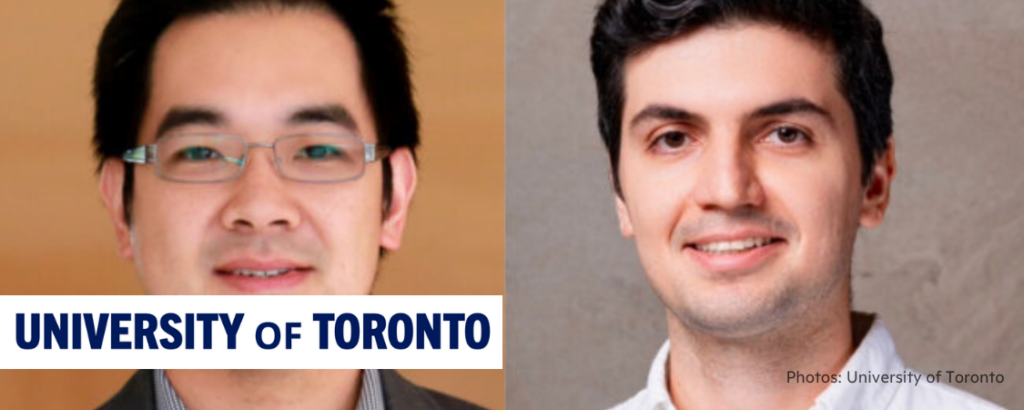
New Microfluidic Device Reveals How the Shape of a Tumour Can Predict a Cancer’s Aggressiveness
Safe Jinje, University of Toronto, 11/14/2024
“Researchers at the University of Toronto[] . . . have designed a new microfluidic platform that allows for unprecedented control and manipulation of tumor shapes — a largely unexplored area with great potential to advance cancer research.”
“The work . . . offers new insights into how the shape of tumours can predict cancer cell behaviour and aggressiveness, which opens new pathways for more personalized and targeted cancer care.” 📰 Full Story →
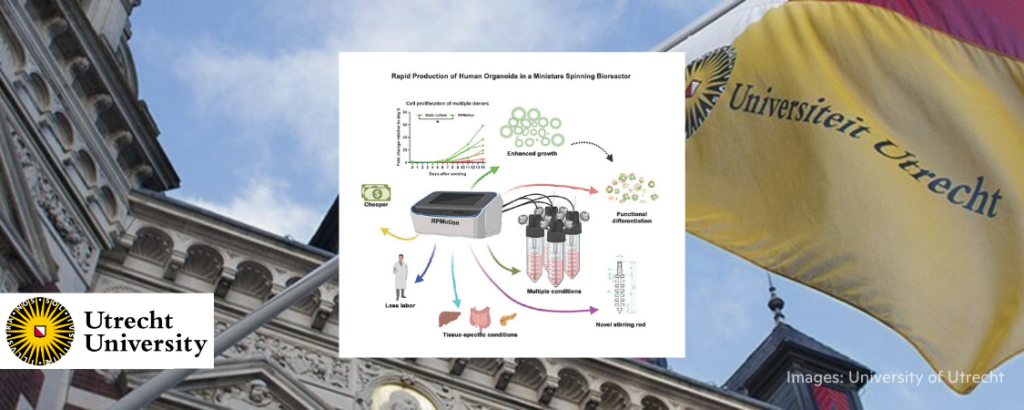
Bioreactor Can Grow Mini-Organs Faster and Cheaper
University of Utrecht, 11/18/2024
“Scientists have developed a bioreactor to efficiently grow human mini-organs . . . ‘We can create mini-organs from various tissues, including liver, pancreas, and intestine. With our RPMotion bioreactor, this can be done quickly and cost-effectively.’” 📰 Full Story →
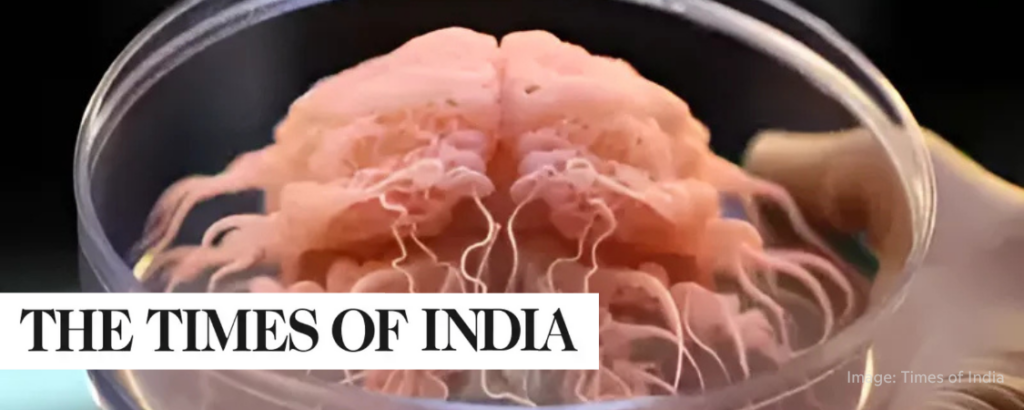
Cure for Alzheimer’s? Scientists Grow Human Brains in Space
Times of India, 11/25/2024
“Scientists have grown tiny human brains in space to research new treatments for Alzheimer’s, Parkinson’s and spinal injuries. The low gravity environment on the International Space Station (ISS) enabled researchers to grow brain organoids in just 72 hours.”
“These organoids, clusters of cells that replicate the structure and function of a human brain, allowed researchers to explore new methods of curing currently untreatable neurological diseases with remarkable speed and precision.” 📰 Full Story →
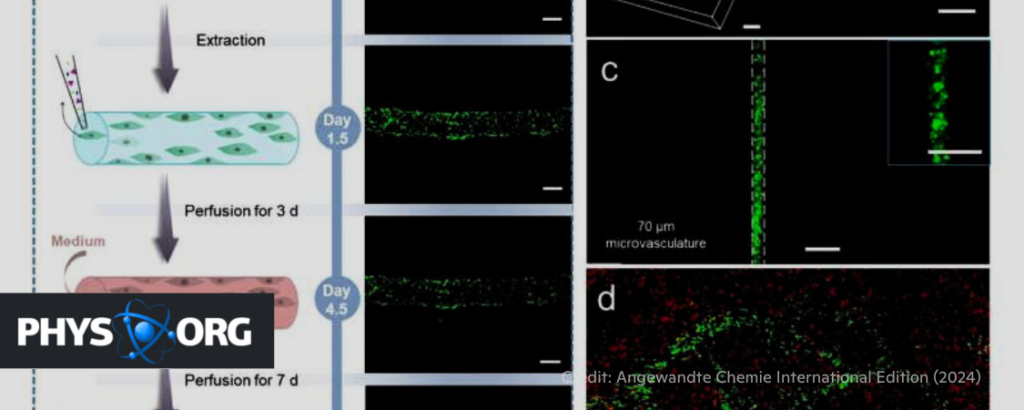
3D Printing for Tiny Blood Vessels Could Help Bring an End to Animal Drug Testing
University of Strathclyde, Glasgow, 11/29/2024
“A study that harnesses a pioneering 3D printing technique to create tiny human blood vessel structures could eventually help end the use of animals to test new drugs.”
“The new method—called PRINCESS (PRINting Cell Embedded Sacrificial Strategy)—uses a special type of DNA hydrogel as a biolubricant, to successfully print the smallest ever microvasculature to date.” 📰 Full Story →